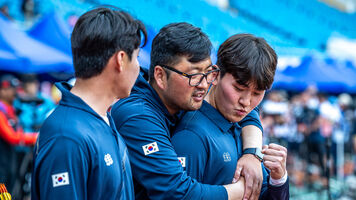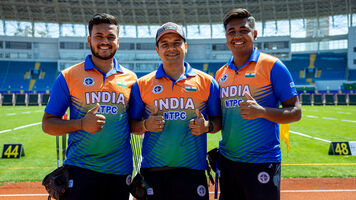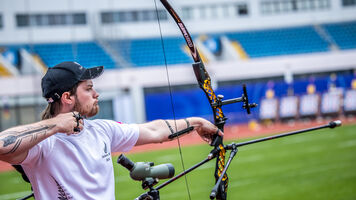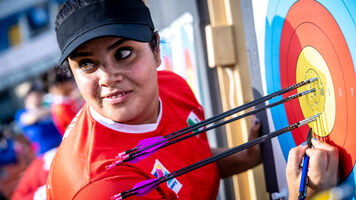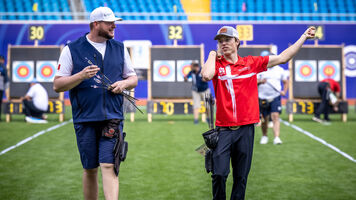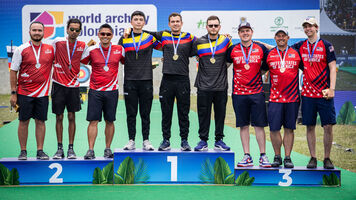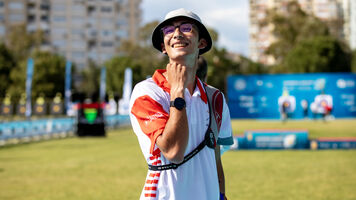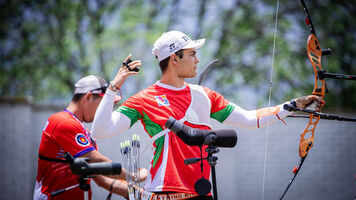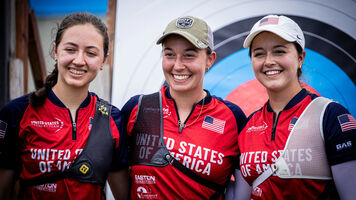From past to future: Archery Competition Manager at the Olympics
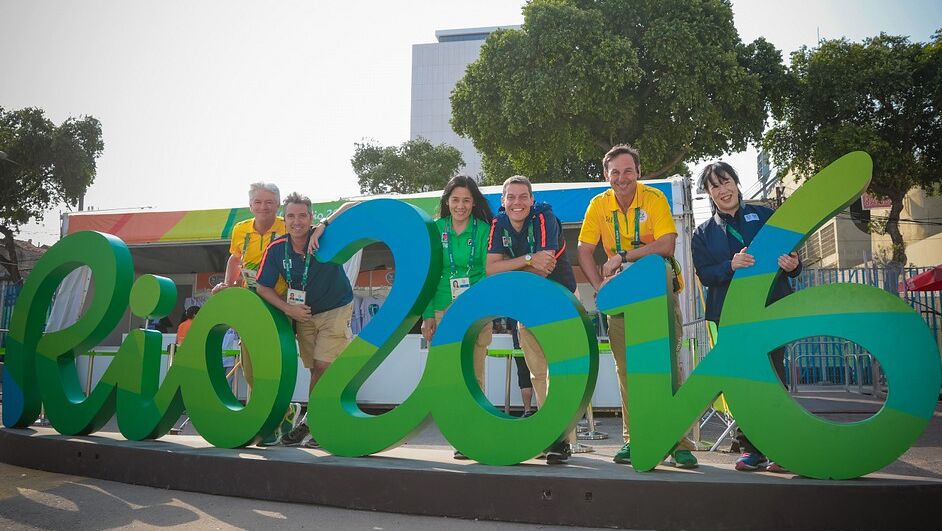
Six Olympic competition managers for archery – past, present and future – are on duty in the Sambodromo in Rio for the 2016 Olympic Games.
Here are their best memories, differences and things alike between Games, the biggest challenges they faced and what it means to deliver such an event as the Olympics.
Don Rabska – Los Angeles 1984
The Archery Competition Director for the 1984 Los Angeles Olympic Games, Don Rabska is today Vice President of Easton Foundations. In Rio, he is responsible for the equipment repair booth where archers can get their bows fixed.
When asked what he remembers from the 1984 Games, he replies, jokeful: “Nothing, I’m very old now!”
He still remembers the amount of work and details that was put into putting the venue together and binging all the different directors from the other sports as well as the necessary supports needed from different areas, such as medical, transportation and food service.
“It was an exciting time, a great time of my life.”
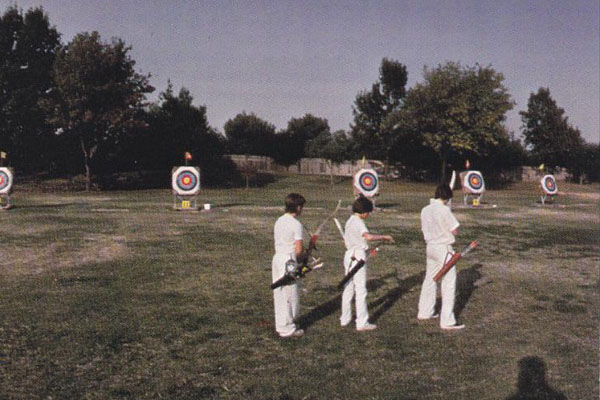
The best memories Don has is working with the staff and the volunteers, working together for a hundreds hours a week for the last six months straight. “We had a great bounding time, it was a family, with Jim Easton as our supreme leader,” he says laughing. “It was really fantastic.”
In 1984, the archery competition’s format was a double FITA Rounds, which included 288 arrows shot over four days at four distances – 70m, 60m, 50m, 30m for women and 90m, 70m, 50m, 30m for men. It was the fourth, and last time, the format was used in an Olympics.
“It was pretty boring for the public, the only thing that was exciting was when you saw the scores change on the scoreboard, so we had to change that,” Don explains.
He adds that things have become more complex now with all the brackets and the head-to-head matches, and archery has really made a turn-around and turned into one of the most exciting events in the Olympics.
“We’re still shooting archery, but it’s got more settings, a lot of more media involved, it’s a lot more of a show now. The sport has progressed wonderfully, it’s been an amazing transformation.”
Delivering such an event is very gratifying, especially when it all comes together.
Don Rabska enjoyed working with all the different directors, all components that had to come together. There were 23 different departments, so working with all those departments was great, because you could construct together as one rather than a bunch of different people.
“Working with my teammates was really the most memorable.”
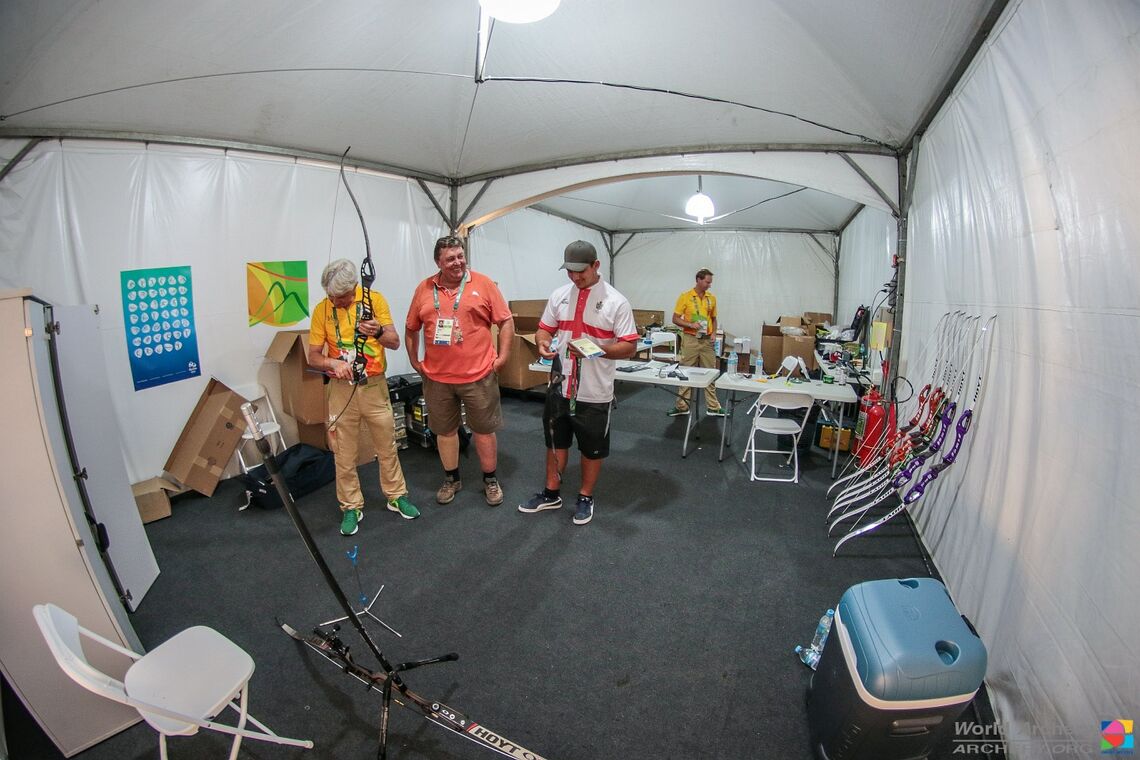
The 1984 archery competition was held in a park. Don explains that all the fencing had cut out all the ducks who were normally fed by the tourists and people coming to the park. So he and his team were going on “duck control” every night, they had big bags of grains and they went to feed the ducks.
“This is something that calmed down from the day, because we were putting down many late hours. Every day at 6 o’clock in the evening everybody picked up their bags and went to feed the ducks for a few minutes, just to relax and then go back to work.”
Bringing everything together and working with city minister authorities and the local government, getting athletes in who were not able to get visas, were the biggest challenges to make sure that everything came together and worked well.
Don remembers that there was a time he hadn’t had any sleep for two days and he got so tired that he couldn’t talk. So when people came and asked him, the words coming out of his mouth were not those that were in his head.
He just turned red and walked away because he was not able to communicate. A 20-min nap in his office later, just to try to refocus, and he was fine after that.
“It wasn’t so funny at the time, it is now,” 1984 archery competition manager concludes.
Juan Carlos Holgado – Athens 2004
The Barcelona 1992 team Olympic Champion joined World Archery as Events Manager after serving as Technical Operations Manager in Athens. He now stands as the federation’s Olympic Games Development Projects Director and will soon run the World Archery Excellence Centre of Lausanne as it Director.
From Athens, Juan Carlos Holgado remembers that the engagement of Greek people with the Games, and how fantastic and very supportive his team was.
The tough part was to organise the venue, at the Panathinaiko Stadium, as it was very complicated with many issues with logistics and the equipment. They had a difficult time getting the technology and the venue ready, and also the branding, but they were on time at the end.
“I’d pick up the last day as my best memory, when we finished,” he says laughing.
“When everything was over, it was like a big party. Even if we had still a lot to dismount later, it was like everything was easy from now on.”
In Athens, Juan Carlos explains, there was a clear management structure, in which everything was escalating and then the answer or the solution was coming down and they knew what to do, and what they had or not.
“Maybe something could not happen but you knew who was responsible and why it was not happening.”
His feeling is that in Rio there is a lack of management and a lack of responsibility of each party.
“Here, when you have issues, you send them above and then they disappear, everything goes to clouds and then vanish. You don’t know who makes decision, you go surprise after surprise. In Athens, we had information and knew where we were.”
At the beginning it’s a big challenge for any competition manager taking the responsibility. You know what the expectations are but you don’t know what tools you have to deliver it.
During the process of working two or three year you find what tools you have, you start using them and facing the limitations, especially budget cut that you compensate by team building. You start losing resources but you start getting people to help you.
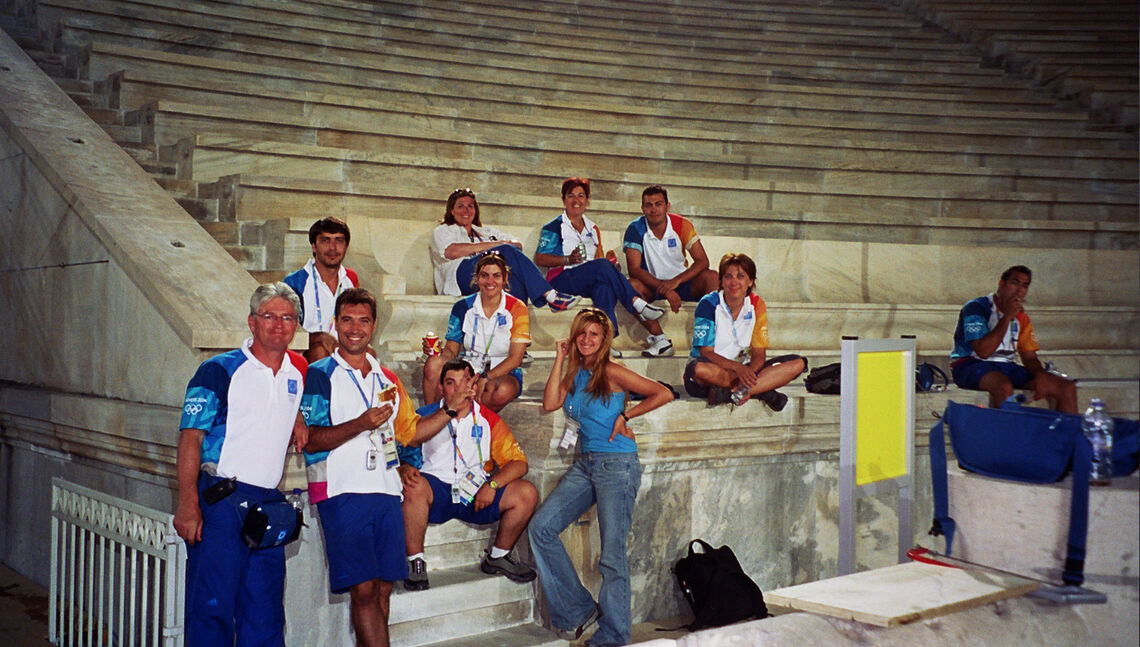
“Competition manager has to take responsibility. When time comes of delivering it’s a big concern, you get really worried to fill the people’s expectations. So when it’s working, it’s finished and people are happy, then you start to celebrate.”
What Juan Carlos Holgado enjoyed the most in his position was working with people – building a team, getting them motivated, get them trained.
The first big challenge was to understand the culture. When you arrive in another country you find out that your way of working is not their way. So you have to find out how they work and then work with their system with your own knowledge.
The second was to get his team understand that things had to be ready before and not just on time. The mentality of the Greek, he says, was ‘don’t worry, things will happen’.
“When I understood how they think and how they operate, I could manage to change the mentality of my people, to make them understand that things have to be done now and not later, then things were working really well.”
Juan Carlos remembers that he was waiting for sports presentation and Rocky Bester was coming to the venue with Greg Baumann. As they were trying to access from the main street, they heard a shot, ‘boom’. So they turned and saw a policeman shot a pigeon!
Xiuzhi Zhang – Beijing 2008
It’s been a long time, more than eight years, but Xiuzhi remembers working with all the people involved. It was the first Olympic Game in China, so they work very hard and did their best to make the Games go well.
Of course the best memory was the gold medal for China and the team that made the bronze medal. “They were very happy and we were very happy too,” she says.
For the 2008 Competition Manager, there is not much difference between now and then. It’s always heading towards creating the atmosphere, making the athletes happy to compete in a very nice and beautiful venue.
“Here, the weather is much better though,” she smiles.
Xiuzhi remembers the weather in Beijing not being very good for two days – women’s team and women’s individual – so that it was really challenging. Some other competitions had to stop, such as tennis and hockey, but the archery rules say that the athletes continue shooting whatever the weather.
“As one of the only sport still running those days, our sport generated lots of attention in the whole world, so that was really good for archery.”
The look of the Games in Rio is fantastic, as the representation team did a really good job with the samba dancing. In China, they didn’t have such performance.
In Beijing they wanted to show the world that China was able to deliver such event, the biggest project in the world, and Zhang thinks they did well.
She enjoyed working with people from all functions, especially with volunteers. In her position she could provide service to all the athletes and the press who were coming from all over the world.
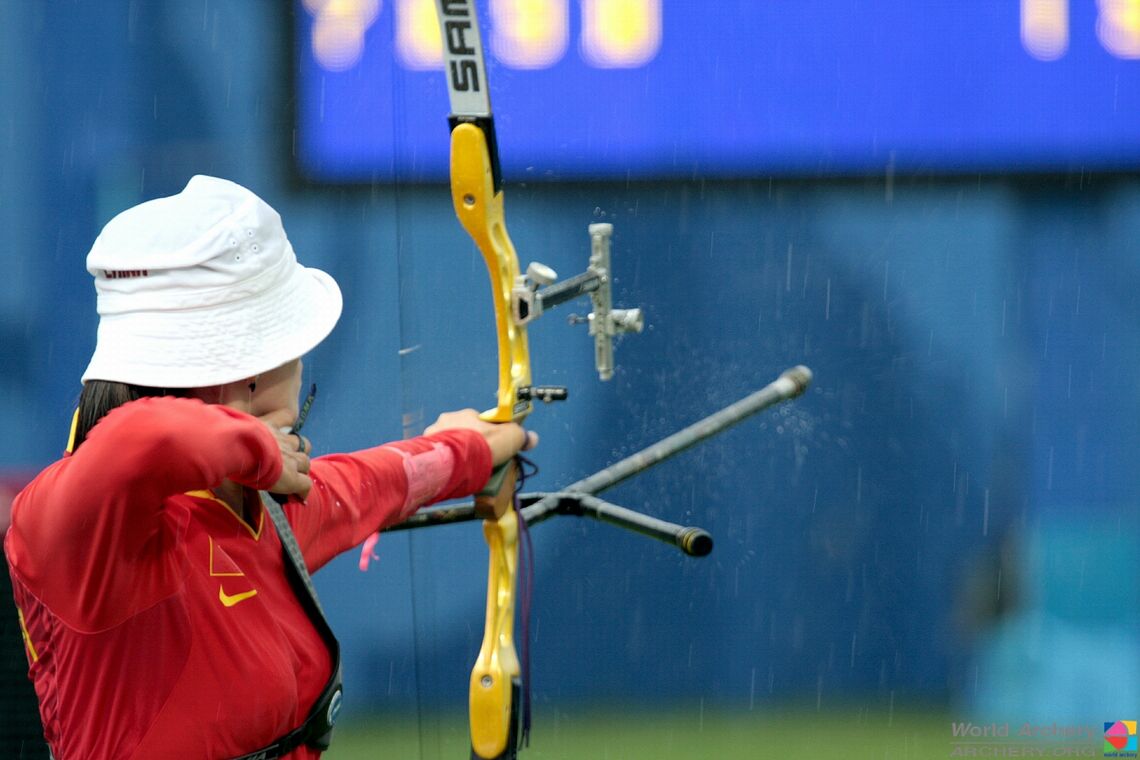
Although she has a background in archery serving as a judge for many years, it was the first time she was involved in the organisation of such a big event. The biggest challenge was to work with all functions involved, and the IOC’s guidelines that are very complicated.
“Also we had to improve our language, as English is not our first language, to be able to do the job,” Xiuzhi says.
Chris Marsh – London 2012
Chris joined World Archery after the conclusion of the London Olympics as its Events Director, taking over Juan Carlos Holgado.
From London, Chris remembers the atmosphere and energy, and the colleagues and volunteers as the best team he has ever worked with.
From the so many good memories he has, Chris picks up the atmosphere of the archery venue where all the spectator’s seats were full.
“When a British archer put in a 10, that roar is something that will stay with me forever.”
In similarities between the London and Rio Games he sees the countless functional areas you have to work with – there were 96 in London – such security, transport, catering, and so on. Also the complexity of the different areas and the amount of people to work with.
The venue and culture are very different, good and bad, Chris says. In Brazil he likes the energy and the fantastic colours. “And the weather is a lot better, that’s for sure,” he adds, laughing.
The group of competition managers is a very special group, as there are not so many of them, compared to Olympic medallists. Chris says it’s the “most honourable and rewarding job” he has ever had.

“What I enjoyed the most was the variety and working with the volunteers.”
The biggest challenge in London, he thinks, was communication, discussing with functional areas to make sure they deliver what was needed for the sport.
“All functional areas want to be in big sports, such as tennis and athletics, so you have to engage them and make them believe that your sport is important,” he says.
The Olympics is quite complex, but make them believe that the sport is easy to serve and to work with, and build relationships were key to make sure they got what they needed.
A funny part Chris remembers was Lord’s Cricket Ground’s rules and regulations of not walking on the grass.
“A lot of the foreign volunteers and functionaries that were from outside the UK don’t understand when you say ‘do not walk on the grass’,” Chris Marsh explains. “They don’t understand that that area of turf is sacred, it’s two hundred years old, and that there’s rules and regulations.”
“That is such a very British thing, and massively different compared to Rio where you can walk everywhere.”
At the Paralympic Games, one set of medals for the teams hadn’t been delivered, and it said athletics on it. So they called the Athletics Competition Manager, but he replied that they had thousands of medals and he didn’t have time to find it.
So the Royal Mint in Wales made a brand new set of medals and they delivered it on a motorbike, from Wales!
“I remember the presentation music starting, they arrived to the venue, the medals were still warm when they were put onto the cushions and they made it on time for the presentation, that was amazing.”
Luiz Almeida – Rio 2016
So far Rio 2016 Competition Manager’s best memories are working with the people of World Archery, who are “very professional and friendly”, he says.
Also Luiz likes the look of the Games that is very beautiful and the public who loves the sport and are cheering all the time.
“Here it’s colourful. I’ve never seen orange coach box before! People are very happy, there’s samba dancers on the field of play.”
And neither have we seen the athletes passing in between samba school dancers to go to the field of play. The athletes look very happy, even if they are very concentrated, they enjoy the music and dancing played for their entrance.
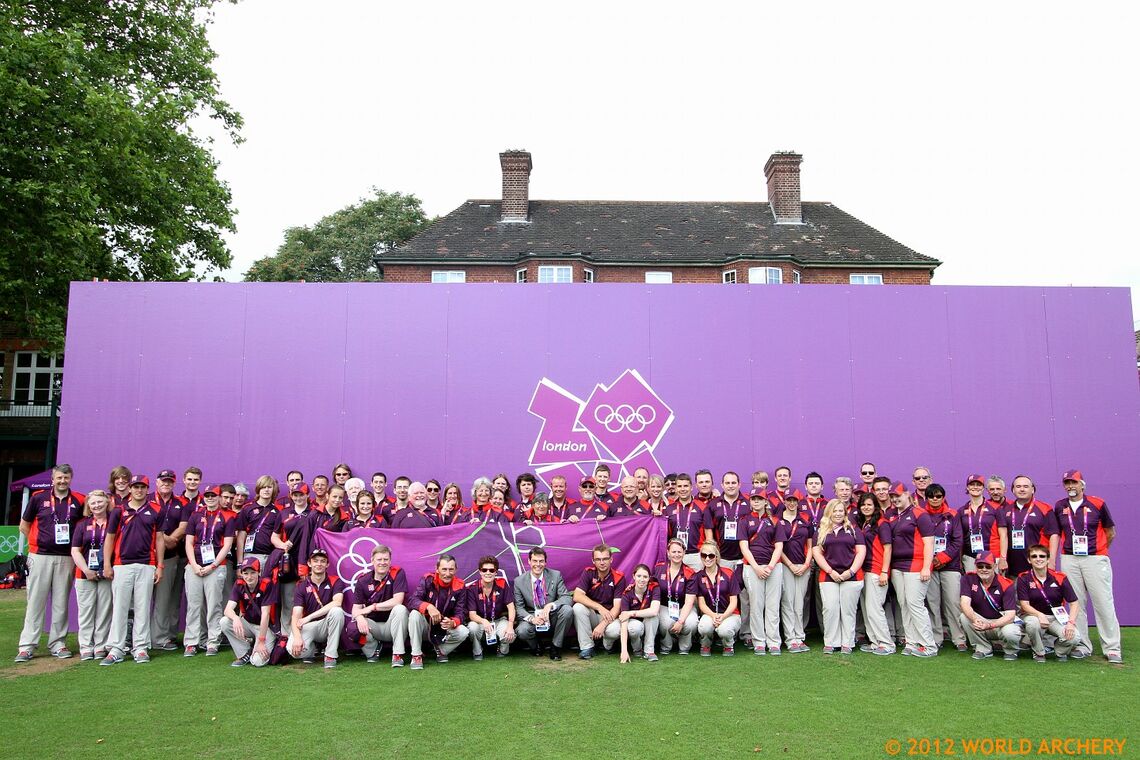
Luiz says it is a big responsibility to deliver this event, and it all depends on all the functional areas involved. The biggest challenge is to connect these functional areas.
“If we do our job but other functional areas fail, then the event cannot run, because all functional areas are connected.”
Some people have never worked in this kind of event before, he adds, and so it’s difficult because they don’t know what is a big event.
“In events, time doesn’t exist, you don’t have a time to arrive and you don’t have a time to leave. These people are not used to work in this way, and it’s very difficult to put that in their minds.”
What is Luiz best reward for hard work?
“I like to see everything ready when the athletes come to shoot, and their eyes shine.”
Yuko Okura – Tokyo 2020
After Rio, Luiz Almeida will hand over to Yuko Okura, his successor for the Tokyo 2020 Games.
“It’s a great opportunity to make the Games and let people know about archery. I’m lucky to be able to work with people who love archery, and that’s the most exciting part,” Yuko says.
Before being appointed as Sport Manager for archery for the 2020 Olympic Games in Tokyo, Yuko Okura worked as a volunteer at the Archery World Cup Final held in 2012 in the Japanese capital.
“Olympics is completed different from other international competitions. I don’t feel like having a different language and another culture, but some people might, so you have to cope with it.”
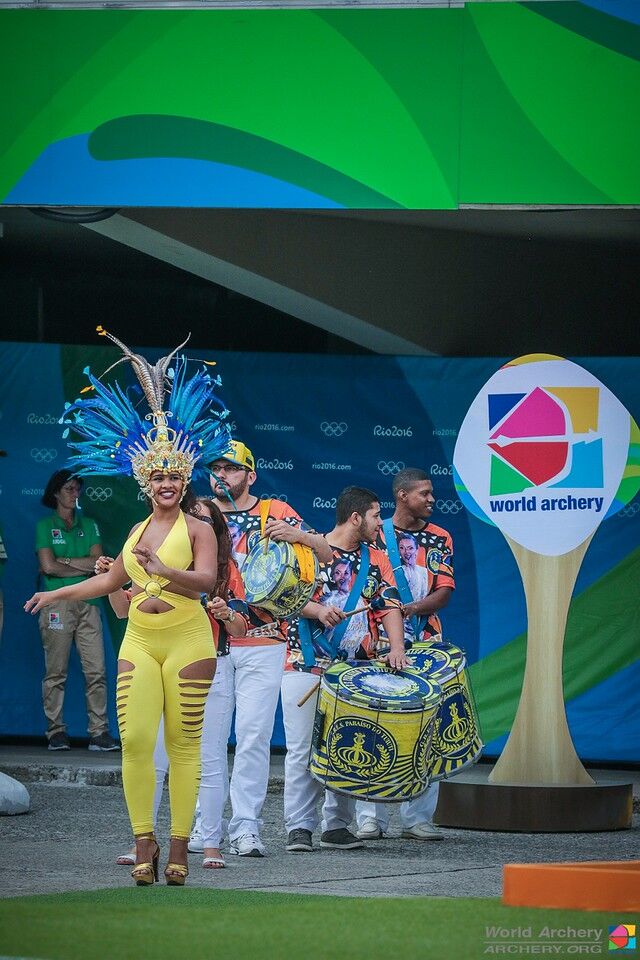
Yuko says as a competition manager you have to communicate with people to make things work, and working together makes things easier and better.
The Japanese has also acted as a translator for the national archery team, which exposed her first-hand to international archery events.
“As a translator I may not have had the possibility to participate in the Olympic Games, but as sports manager for Tokyo 2020 I now have this great opportunity.”
“I know archery is a great sport, and I hope many people will have the chance to realise that through the Olympic and Paralympic Games in Tokyo.”







